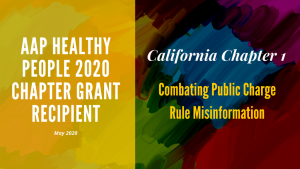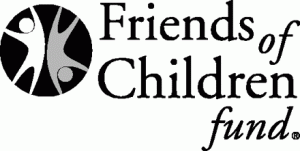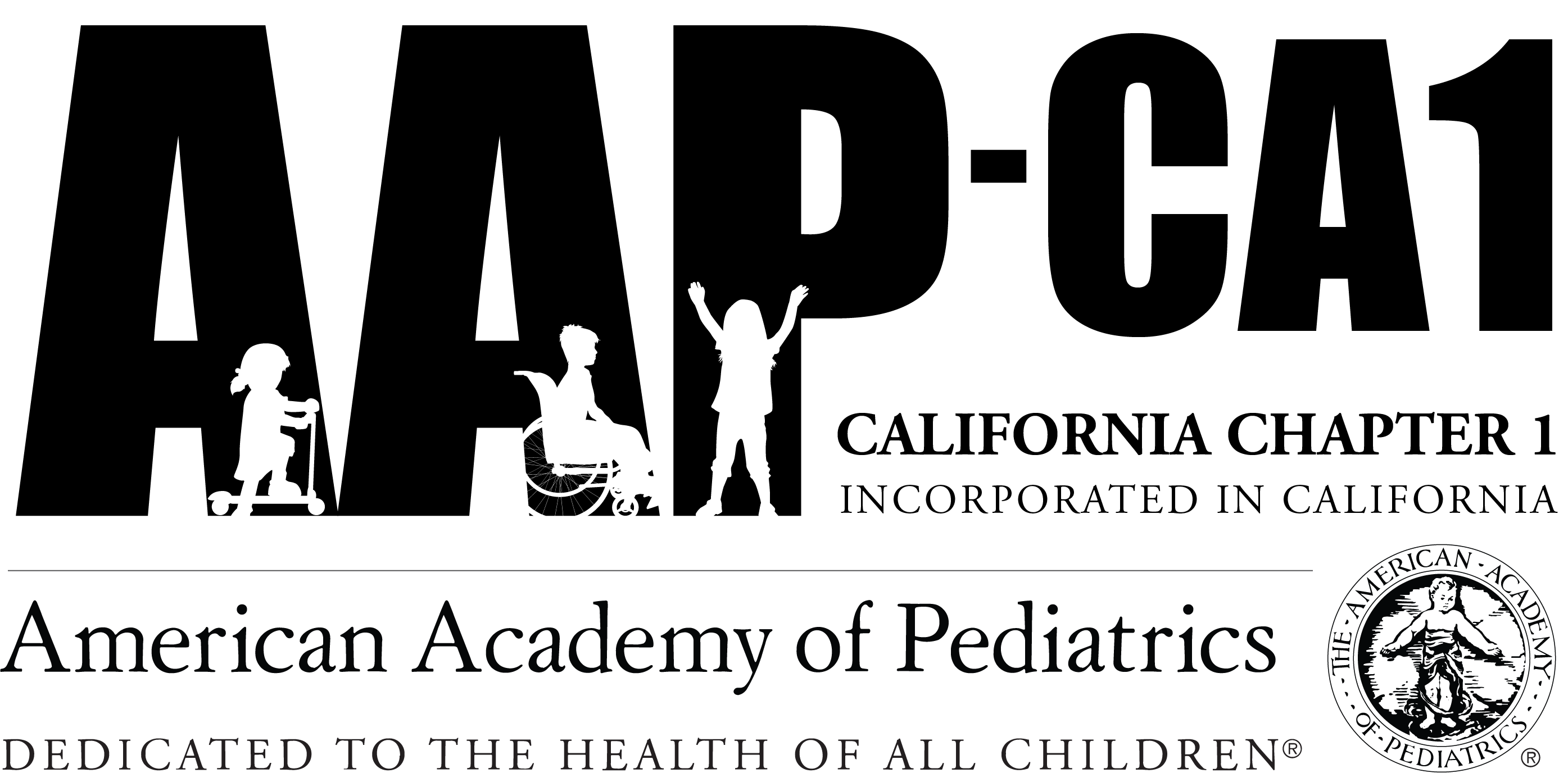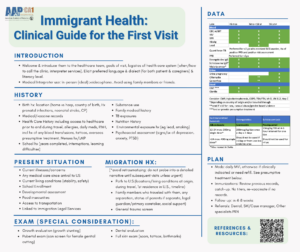 The grant program will disseminate accurate information to address fears related to misinformation about the public charge rule which often dissuades immigrants from using available healthcare resources. Through the use of different media that will be consistently updated, easily accessible, and reliable, this project takes an innovative approach to reaching families by tapping into their daily lives while other interventions have focused on providing information to families through only one modality (eg, healthcare) or through static singular handouts or events. This program aims to dispel misinformation about the public charge rule through a two-pronged approach that creates accurate resources with current and periodically updated information for 1) physicians and 2) immigrant families and advocates. The first set of resources will target providers and immigrant family interactions to ensure that patients and families are receiving accurate information in healthcare settings. The second set of resources will focus more broadly on community members and will span multiple different media to reach a larger population. With the planned two-pronged approach, physicians will also be able to strengthen their knowledge base so that they can more effectively offer patients accurate advice and resources, serving as another point of contact.
The grant program will disseminate accurate information to address fears related to misinformation about the public charge rule which often dissuades immigrants from using available healthcare resources. Through the use of different media that will be consistently updated, easily accessible, and reliable, this project takes an innovative approach to reaching families by tapping into their daily lives while other interventions have focused on providing information to families through only one modality (eg, healthcare) or through static singular handouts or events. This program aims to dispel misinformation about the public charge rule through a two-pronged approach that creates accurate resources with current and periodically updated information for 1) physicians and 2) immigrant families and advocates. The first set of resources will target providers and immigrant family interactions to ensure that patients and families are receiving accurate information in healthcare settings. The second set of resources will focus more broadly on community members and will span multiple different media to reach a larger population. With the planned two-pronged approach, physicians will also be able to strengthen their knowledge base so that they can more effectively offer patients accurate advice and resources, serving as another point of contact.PUBLIC CHARGE UPDATE
As of March 9,2021, the public charge rule has been reverted back to its 1999 guidelines. Read more below!
Immigrant Child Clinical Recommendations
These clinical practice guidelines have been consolidated from the latest recommendations from the CDC and AAP.
Public Charge Resources for Immigrant Families
Learn more about your families' rights under the Public Charge Rule
Chapter Chats
March 23, 2022: Clinical Recommendations and Models of Care for Newcomer Children
Slides available HERE
October 28, 2021: Supporting the Resettlement and Care of Afghan Refugees
August 13, 2021: Supporting the Mental Health and Wellness of Immigrant Families
July 8, 2021: UnDocu-Ally Training for Health Professionals with Yadira Ortiz and Maria De Los Angeles Almaraz
Slides available HERE
April 21, 2021 : Welcoming Immigrant Families in a Clinical Setting Chapter Chat with Clarisa Reyes-Becerra, Esq. and Dr. Anisa Ibrahim
Since this lecture was recorded, the public charge rule was reversed in March 2021 back to the pre-Trump 1999 guidelines. As such, the only benefits included will be cash assistance programs and long term institutionalized care. The rest of the information provided in the webinar is still applicable. For more information, please see our pediatrician and family resource pages.
January 13, 2021 : Public Charge Chapter Chat with Clarisa Reyes-Becerra
Alexandria Valdrighi, MD, FAAP & Raul Gutierrez, MD, FAAP
The California Chapter 1, AAP program aims to dispel misinformation about the public charge rule through a two-pronged approach that creates accurate resources with current and periodically updated information for 1) physicians and 2) immigrant families and advocates. The first set of resources will target providers and immigrant family interactions to ensure that patients and families are receiving accurate information in healthcare settings. The second set of resources will focus more broadly on community members and will span multiple different media to reach a larger population.
The goal of the first set of resources is to empower healthcare providers to deliver accurate information on the public charge rule and refer families to appropriate resources when applicable. Physician educational materials will be created on the public charge rule including modules, presentations, and handouts. Additionally, following the “train the trainer model," a chapter webinar will be developed through the Immigrant Health Task Force to assure wide distribution of information and materials so that staff at community hospitals, clinics and practices can acquire similar education and skills.
The second set of resources will be directed toward reaching families and advocates in the community and will be adjusted based on pre-survey data about families' primary source of public charge rule information. It is anticipated that it will be multimodal and include creation of media ads, podcasts, phone application and social media campaigns to reach multiple generations. In addition, the chapter Immigrant Health Task Force webpage will provide continued updates on the public charge rule and provide community resources. The campaign will not only focus on providing accurate information about the public charge rule to multiple stakeholders, but will also educate families on the best legitimate sources for information in the future, including the California 1 Chapter Immigrant Health Task Force website and the website's of other community partners. This will all be contained in one app that provides continuous guidance for medical providers and advocates and instant navigation for families. The chapter will have access to attorney advisors who will be able to offer legal advice to families about the public charge rule's impact on their specific situation.
The grant program will disseminate accurate information to address fears related to misinformation about the public charge rule which often dissuades immigrants from using available healthcare resources. Through the use of different media that will be consistently updated, easily accessible, and reliable, this project takes an innovative approach to reaching families by tapping into their daily lives while other interventions have focused on providing information to families through only one modality (eg, healthcare) or through static singular handouts or events. With the planned two-pronged approach, physicians will also be able to strengthen their knowledge base so that they can more effectively offer patients accurate advice and resources, serving as another point of contact.
Community Engagement Team
Physician Engagement Team
Additional Team Members
- Benioff Children's Hospitals Center of Excellence of Immigrant Child Health and Wellbeing
- California Rural Legal Assistance Foundation (CRLAF)
- CARECEN SF
- Clinica Martin-Baro
- El Centro: Bayview
- Good Samaritan FRC
- San Francisco Unified School District
- Pre-Health Dreamers
- UCSF: Health & Human Rights Initiative (HHRI)
More community partners welcomed!
Interested in getting involved?
This grant program is only made possible thanks to donations to the Friends of Children Fund.


